As a core element in home design, a well-positioned window in a bedroom can truly transform the room, bringing in natural light, promoting ventilation, and serving as a crucial point of egress during emergencies. However, a question that often arises is, “Do bedrooms have to have windows?”
Before we venture into this exciting exploration of bedrooms and windows, we want to clarify that this article is the culmination of vast research and is penned by experts in the field, ensuring you receive the most accurate, reliable, and comprehensive information possible.
Legal Requirements for Bedroom Windows
Primarily, bedrooms are subject to several legal and building code requirements to ensure safety and habitability. According to the International Residential Code (IRC), a room can only be deemed a bedroom if it has at least one operable window for emergency egress. This egress window should be large enough for a fully-equipped firefighter to gain entry, and for occupants to exit safely in case of a fire or other emergency.
Egress Window Requirements for Bedrooms
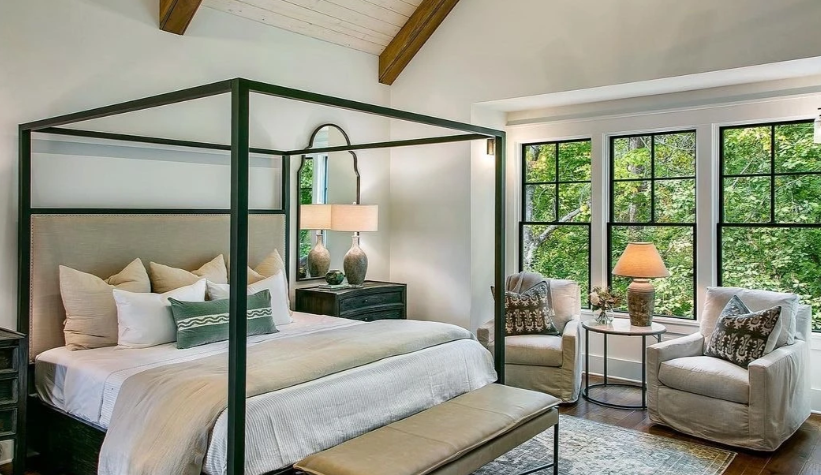
Diving deeper into egress window standards, the IRC states that these windows must have a minimum net clear opening of 5.7 square feet, a minimum height of 24 inches, and a minimum width of 20 inches. If the window is located below ground level, a window well with ladders or steps for escape is also required.
Building Codes for Bedroom Windows
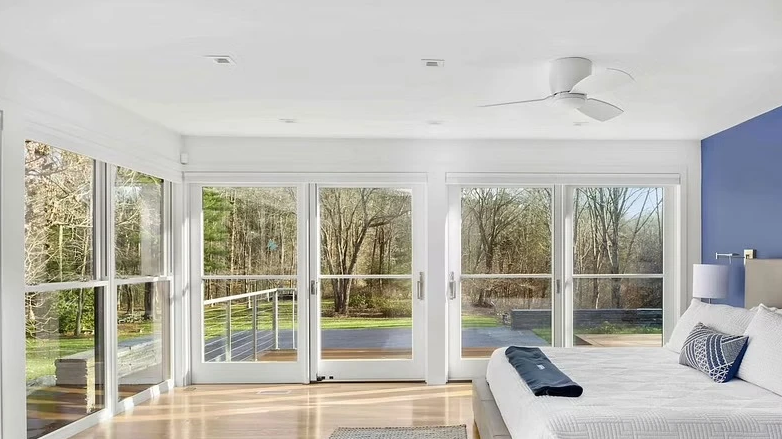
Building codes also factor in the importance of natural light and ventilation. According to the same IRC guidelines, a window in a bedroom must be at least 8% of the room’s floor area for natural light, and 4% for ventilation. These regulations are geared toward creating healthier living conditions and enhancing the overall quality of life.
The Debate of Windowless Bedrooms
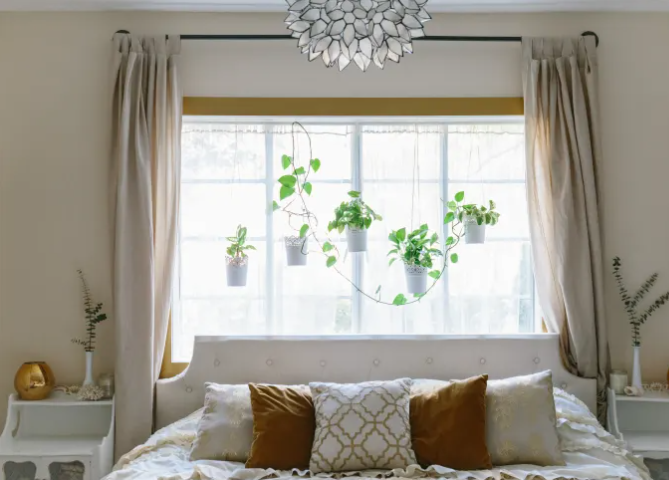
However, you might wonder, are there exceptions for windowless bedrooms? The answer is, it’s complicated. A windowless room can serve many purposes—like a den, an office, or a storage area. But to legally be labeled a bedroom, it needs to meet the specific standards and requirements outlined above. This rule ensures that inhabitants’ safety is prioritized and that living conditions are favorable.
Air Circulation in Bedrooms
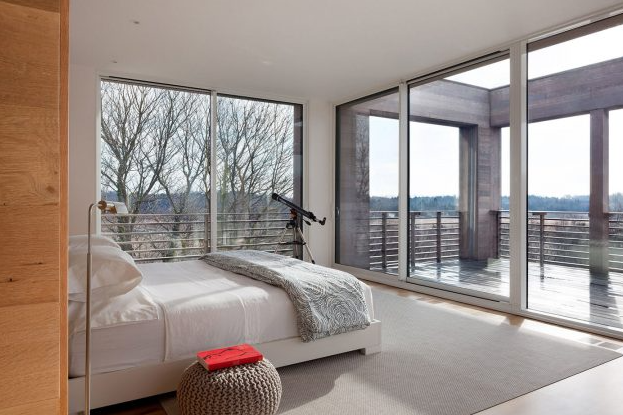
Beyond the legal aspects, a window also plays a key role in promoting a healthier living environment. Bedrooms without windows can often struggle with stale air and insufficient ventilation. In contrast, a window allows for the exchange of indoor and outdoor air, reducing pollutants and ensuring a continuous supply of fresh air.
Natural Light in Bedrooms: A Game Changer
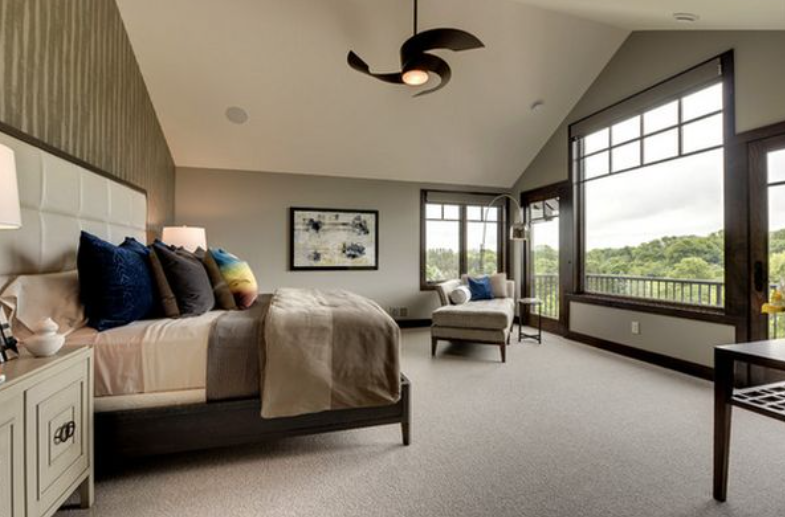
In the realm of design and aesthetics, windows in bedrooms are game-changers. They invite natural light, fostering a warm, bright ambiance and creating an illusion of space. Moreover, exposure to natural light has been scientifically linked to improved mood, productivity, and overall well-being—making it an essential element in any bedroom.
Safety Standards for Bedroom Windows
The presence of windows in bedrooms also has a significant impact on safety. Egress windows serve as vital exit points during emergencies, providing an alternative route for escape if the primary exit is blocked. Therefore, adhering to the safety standards for bedroom windows is non-negotiable.
Revolutionizing Bedroom Design with Window Placement
Finally, in the world of interior design, window placement in bedrooms has evolved into an art. From the traditional single window to a series of windows, or even a floor-to-ceiling glass wall, there are limitless ways to incorporate windows into your bedroom design.
In summary, while you might creatively use a windowless room in your house, to legally qualify as a bedroom, a room must adhere to the standards for windows regarding size, placement, and function. Windows don’t just check off a legal requirement, but they also greatly contribute to the aesthetic, health, and safety aspects of a bedroom.
Remember, the importance of windows in a bedroom extends beyond legal requirements. They play an integral role in shaping the atmosphere of the room, ensuring a healthy living environment, and safeguarding the inhabitants’ safety. As you plan your dream home or consider renovating existing spaces, let these facts guide your decisions, and remember, the dance between bedrooms and windows is one of beauty, functionality, and safety.
Health Benefits of Bedroom Windows
One significant, often overlooked aspect of having windows in bedrooms is the array of health benefits they offer. From improving air quality to promoting better sleep, windows can significantly enhance your overall well-being.
Exposure to natural light is known to regulate the body’s internal “circadian” rhythm, the 24-hour internal clock that cycles between sleepiness and alertness. With access to sunlight in the morning, individuals tend to wake up feeling refreshed and energized. Moreover, sunlight is an excellent source of vitamin D—a nutrient that plays a pivotal role in many bodily functions, such as bone health, immune function, and mood regulation.
In terms of air quality, bedroom windows facilitate airflow and help in maintaining optimal humidity levels. Proper ventilation reduces the concentration of pollutants and airborne allergens, which can lead to a decrease in respiratory problems and allergies.
Window Options for Bedrooms
The world of architecture and design presents a wide range of window options for bedrooms, each offering unique aesthetics and functionalities.
Double-Hung Windows: A common choice for bedrooms, double-hung windows have two sashes in a single frame that slide up and down. They are versatile, easy to clean, and excellent for ventilation.
Casement Windows: These windows are hinged at the sides and open outward, offering unobstructed views and optimal ventilation. Casement windows are also known for their energy efficiency due to their tight seal.
Sliding Windows: Offering a modern, minimalistic aesthetic, sliding windows operate horizontally on a track. They provide wide views and ample ventilation, making them an excellent option for smaller bedrooms.
Bay or Bow Windows: If you’re looking for a dramatic architectural statement, consider bay or bow windows. They project outward from the main walls, creating a cozy nook and allowing natural light to pour in from various angles.
Skylights: Ideal for rooms with limited wall space, skylights are windows installed in the ceiling. They provide abundant natural light and a view of the sky, creating a sense of openness.
Designing Bedrooms with Window Placement in Mind
Window placement in a bedroom significantly impacts the room’s overall comfort, functionality, and aesthetic appeal. While designing or remodeling your bedroom, consider factors such as the direction of sunlight, views, privacy, and furniture placement.
For instance, a window facing east allows plenty of morning sunlight, making the room bright and warm when you wake up. However, if you’re not a morning person, you might prefer a west-facing window that lets in the softer, warmer hues of the evening sun.
The positioning of the window should also take into account the room’s layout and the placement of furniture. For example, placing the bed against a window might offer fantastic views but could also lead to drafts or excessive sunlight disturbing your sleep. Therefore, careful planning is needed to strike a balance between aesthetics and practicality.
Challenges and Solutions for Windowless Bedrooms
While bedrooms require windows for safety, health, and design reasons, there may be instances where bedrooms lack windows due to structural constraints or design oversights. However, these challenges are not insurmountable, and several creative solutions can simulate the benefits offered by windows.
Artificial lighting can play a crucial role in windowless bedrooms. By using a combination of general, task, and accent lighting, you can create a layered lighting plan that effectively illuminates the room and creates a pleasant atmosphere. Light therapy lamps that simulate natural sunlight can also be employed to help regulate sleep patterns and mood.
Air circulation can be improved by incorporating air purifiers, humidifiers, or dehumidifiers as needed, and using fans or HVAC systems to regulate temperature and maintain fresh air.
Lastly, mirrors can be used strategically to reflect light and create a sense of depth, while art and interior décor can replace views typically offered by windows, providing visual interest and personality to the space.
FAQs About Do Bedrooms Have to Have Windows?
1. Can a bedroom be considered habitable without windows?
No. According to the IRC, a room can only be considered a bedroom if it has at least one operable window that meets specific size and placement requirements.
2. What are the minimum size requirements for bedroom windows?
For egress, the window should have a minimum net clear opening of 5.7 square feet, a minimum height of 24 inches, and a minimum width of 20 inches.
3. Are there exceptions for windowless bedrooms?
A room without a window can be used for various purposes but cannot legally be classified as a bedroom according to building codes.
Also Read: what is a benefit of interference in quantum computing?
Conclusion
The requirement for bedrooms to have windows extends beyond building codes and legal stipulations. Windows serve a host of functionalities—health benefits, safety provisions, aesthetic appeal, and much more. However, if faced with a windowless bedroom scenario, various strategies can help replicate the benefits typically associated with windows. As we continuously evolve our living spaces to suit our needs, the essence remains that our bedrooms should be safe, healthy, comfortable, and invigorating spaces for us to rest and rejuvenate. At the end, we hope this guide about “Do Bedrooms Have to Have Windows?” clear all your queries related to the topic.

Tasha Harshman is a dynamic writer with a broad range of expertise. She creates compelling and informative content, offering valuable insights and consistently engaging readers with her deep knowledge and passion for a variety of subjects.

